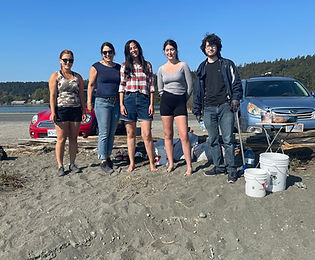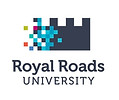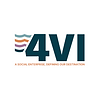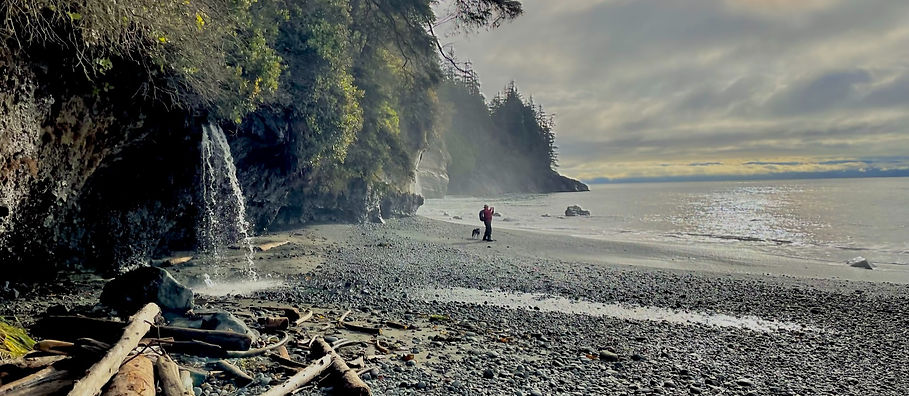
Sustainable Adventures
<meta name="google-site-verification" content="o2dpcTrfLX-od6mDgn5fh11CUJoBH8OkVxdi7XdCH-E" />
Mystic Beach, Sooke | Katerina Moiseeva
Ocean Friendly Initiative on Vancouver Island is a collaborative effort between non-profits and tourism businesses, dedicated to promoting sustainable practices for the protection of our oceans. I am Katerina Moiseeva, a proud grant recipient from Mitacs, working alongside Royal Roads University, and fellow passionate individuals who share our vision. Together, we aim to safeguard marine and coastal ecosystems across Vancouver Island through educational initiatives, community outreach programs, and awareness campaigns. Join me and become a part of the solution for a healthier and more sustainable future.


What current initiatives are taking place on Vancouver Island? Combined efforts reduce plastic pollution, promote sustainable tourism, and elevate awareness about environmental issues along Vancouver Island's stunning coastlines.
Discover how even small beach cleanups can make a real difference, from removing microplastics to inspiring a global movement. Explore a new breed of eco-conscious travelers who are redefining vacations with a purpose.
Explore a real example of an organized beach cleanup with Royal Roads University students and delve into every step, from preparation to execution, along with valuable takeaways and feedback.
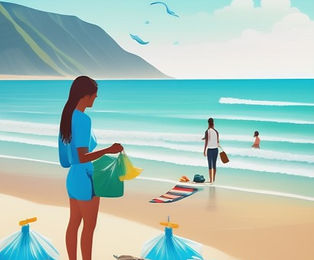
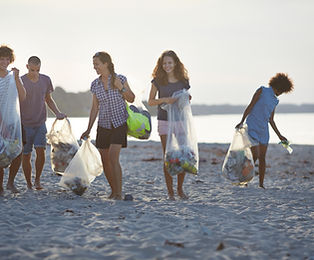
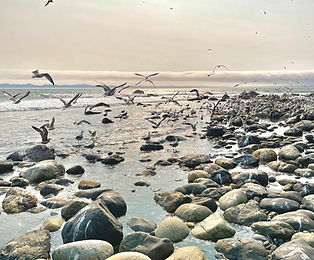_JPEG.jpeg)
Discover ways to unite ocean cleanup non-profits dedicated to environmental conservation with the tourism industry. Explore creative fundraising strategies.
Use this toolkit featuring a step-by-step guide to effortlessly orchestrate your very own beach cleanup event: detailed and mini version.
Pleasure, socialization, education, storytelling, and meaning. These pillars are the foundation of a beach cleanup event. Embark on a journey of personal and global transformation.
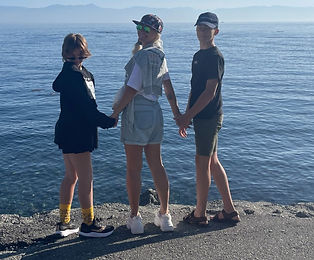
Explore the impact of tourism on ocean pollution and discover how Vancouver Island can harness the potential of tourists to actively engage in ocean protection.

Learn what motivates locals and tourists to participate in beach cleanups. Explore types of eco-activists and what drive them.
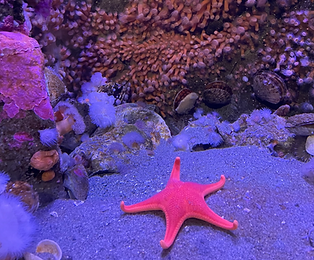
Explore how tourism operators on Vancouver island are minimizing their impact on the ocean. From sustainable seafood to plastic reduction and local conservation.
Balancing Tourism and Ocean Conservation on Vancouver Island
Vancouver Island, a stunning paradise where tourism has flourished over the years. However, this growth hasn't come without consequences. The Pacific Ocean and our beautiful Salish Sea – what draws tourists, are facing greater pressures due to tourism's rise. We're in a race against time to protect our coastal territories and the creatures that call them home.
Vancouver Island's shores, from Tofino's surfer's haven to Ucluelet, from Victoria and its coastal city charm to Sooke with its rugged coastline, lush rainforests, and dramatic ocean views with best on the island coastal hiking trails, from expansive family-friendly sandy beaches of Parksville to marine parks of busy Nanaimo, from Comox nestled between the ocean and the mountains to Campbell River - "Salmon Capital of the World," a paradise for fishing enthusiasts, from Port Renfrew and its former botanical station used to explore vibrant creatures of Salish sea to far-end destinations with absolute pristine solitude and wilderness like San Josef Bay, Cape Scott and Port Hardy being an important hub for travelers exploring the northern parts of Vancouver Island. These destinations have always been magnets for travelers seeking adventure and tranquility by the ocean.
But, as more visitors flock to our coastal playgrounds, we're leaving behind more than just footprints. The buzz of tourism has brought along waste and pollution, impacting ecosystems that make our island so special. Pressures on the coast and ocean ecosystems need to be acknowledged in order to maintain ecosystem functions and preserve biodiversity.

Partnerships
Together with 4VI and RRU (Royal Roads University), supported by Mitacs Business Strategy Internship. I started the project, aiming to understand what effective changes can be made to mitigate ocean and coastal pollution on the island.
4VI, (4 Tourism Vancouver Island), is a non-profit organization supporting the island's tourism industry by connecting businesses with travelers and locals. Recently, it transitioned into a social enterprise, redirecting its focus towards establishing a sustainable visitor economy. 4VI participates in the Glasgow Declaration on Climate Action in Tourism, measuring tourism's carbon footprint and CO2 emissions on Vancouver Island. It has also earned the Biosphere certification, showcasing its dedication to sustainability across climate change, environment, social matters, economy, and culture. By promoting responsible tourism, 4VI not only attracts visitors but also safeguards the island's ecosystems, communities, culture, and future generations.
School of Tourism and Hospitality Management at Royal Roads University, located on Vancouver Island, British Columbia, is renowned for its commitment to sustainable education and shaping sustainable tourism practices in Canada. It offers innovative programs that empower future leaders in the tourism industry with a deep understanding of sustainability principles. Through research, education, and community engagement, RRU is driving the transformation of Vancouver Island’s tourism sector towards a more sustainable and responsible future, ensuring that local stunning landscapes and natural wonders continue to attract visitors and be a great place to live!
The Mitacs Business Strategy Internship (BSI) is a program that bridges the gap between academia and industry, offering students opportunities to gain real-world experience, enhancing their employability, and contributing to the growth and competitiveness of Canadian industries. Mitacs BSI is a catalyst for fostering collaboration between academia and the private sector, driving innovation and economic prosperity.
Findings and Insights
Throughout this project, I've connected with passionate ocean advocates of Vancouver Island. I discovered ongoing restoration projects on Vancouver Island – initiatives ranging from remote debris removal to extracting discarded fish gear, and community-driven beach cleanups with an educational focus. In interviews, I engaged with tourism-related businesses eager to make a difference but uncertain about the way forward.
Small Steps, Transformative Impact: The Journey of Beach Cleanups
Starting with a small approach, I focused on beach cleanups. Initially participating in Surfriders’ organized events, I organized my own cleanups that became a project cornerstone. This journey prompted a crucial question: what motivates individuals to join beach cleanups, and how effective are they.
My findings revealed a small powerful truth: beach cleanups are more than practical tasks; they serve as essential tools for ocean protection. For locals, these gatherings foster connections, knowledge sharing, and a deeper sense of place. Even small actions trigger self-reflection and raise awareness of ocean protection.
Proposing Change: Engaging Tourists for Ocean Protection
Tourists benefit too. For the tourists there’s even more. In an era dominated by trends like adventure tourism and the quest for authentic local experiences, beach cleanups offer them an immersive excursion into the vulnerable heart of coastal communities, ecosystems, environmental challenges, and the intricacies of marine life. Tourists can “live like a local” forming connections with fellow participants. Meanwhile, the hands-on nature of cleanups encourages a deeper understanding of the environment's fragility and the importance of preservation efforts. Beach cleanups cultivate responsible tourism, foster environmental consciousness, and enhance the sense of fulfillment and connection with the local community since they see that their actions have positive impacts on ocean life care.
Tools for Transformation: The Outcome of the Project
Based on these insights, I propose an innovative approach to engage tourists and tourism businesses to participate in beach cleanups that would lead to mitigation of impacts on ocean and intertidal ecosystems, raise awareness and drive change. I've created tools including a Beach Cleanup Toolkit, a Voluntourism Framework for Beach Cleanups, a Guide for tourism operators on how to effectively utilize beach cleanups, a Detailed description of the various phases of beach cleanups (pre-, during-, and post-), a Guide for Tourism Operators outlining actions to mitigate their impact on the ocean. Insights garnered from discussions with stakeholders about their initiatives, and survey results to understand what motivates people to participate in beach cleanups were my major tools.
